Much confusion and controversy surround the subject of whether pumpkin seeds are a “natural dewormer” in chickens. I am always open to and interested in things that will help me keep my flock healthy, but I do not accept claims that seem too good to be true blindly. There is no evidence that pumpkin or pumpkin seeds act as a general dewormer in chickens. Let’s look at the seed of truth that lies within this commonly parroted claim and understand why the claim is false.
Innocent until proven guilty.According to Dr. Mike Petrik, DVM, MsC, aka: The Chicken Vet, “(m)ost worm medications have no claim for laying hens. As such, they won’t tell you how long not to eat the eggs after treatment like many antibiotics do. The reason is simple….the research has not been done. It literally costs millions of dollars to get label claims on medications verified to the satisfaction of licensing bodies. Because modern egg farms have essentially no worm infections, it is not cost effective to get the claim on the drug in question.”
That statement is also true of alternative/natural/herbal remedies, including the ingestion of pumpkin seeds. The research simply has not been done to prove the effectiveness of pumpkin seeds as either a preventative worming measure or treatment option in chickens.
There is, however, some literature on the use of pumpkin seeds as dewormers in test tubes, horses and, to a limited degree, in humans. Let’s take a look at some of that literature to get a better understanding of what the pumpkin seeds claims and conclusions in those instances.
Pumpkins are one variety of the Curcurbita plant family, others include: autumn squash, summer squash, and butternut squash. “[R]esearchers have shown that an ingredient in curcurbita seeds- an unusual amino acid called curcurbitin found only in certain species- kills worms in the test tube. In adequate doses this substance is also believed to paralyze worms in a person’s intestines, enabling the body to flush them out. Tapeworms and roundworms in particular are susceptible. Getting a high enough concentration of the herb to expel worms can be challenging, however, partly because the concentration of curcurbitin varies widely among Curcurbita plants. The concentration of curcurbitin in Curcurbitapepo (pumpkin) can range as much as five percent. Such variations may explain why some investigators have declared the herb ineffective for intestinal worms; there may not have been enough curcurbitin in their samples, or possibly in the variety they were testing. In fact, no one seems quite sure how many curcurbita seeds (or how much curcurbitin) it takes to vanquish worms. These unknowns make it difficult to endorse or dismiss this traditional remedy. Studies on the effectiveness and safety of this substance are conflicting, or there are not enough studies to draw a conclusion.”1
Another article, Dewormer Adjuncts, Control Without, or Along With, Chemicals, written by Karen Briggs and three veterinarians for TheHorse.com essentially echoes the findings of the Pierce publication cited above. This article reviews possible strategies for reducing the risk of parasite transmission in horses. One of the conclusions reached is as follows: “Pumpkin seeds have been used as an herbal remedy for treating parasite infections in horses because the seeds contain the amino acid cucurbitin, which many herbalists consider to be a natural anthelmintic. However, the efficacy of organic/herbal dewormers has never been demonstrated in formal, controlled studies.” 2
Beware of the argument “I feed my chickens pumpkin seeds and they have never had worms therefore, pumpkin seeds are an effective, natural dewormer.” That proposition is flawed logic, not evidence of anything. All chickens that forage outside carry some load of worms. Earthworms transmit roundworms and what backyard chicken doesn’t love a nice earthworm? Healthy chickens can manage a normal worm load. The important question is how worm overloads should be addressed. Dr. Petrik offers some insight on that subject in this article.
Taking all of the research into consideration, my conclusions are:
- Since there is no scientific evidence anywhere to suggest that curcurbitin is capable of deworming or reducing the worm load in chickens, I will not rely on pumpkin seeds as a preventative measure or as a treatment option for worm infestations in my flock should it ever be necessary.
- Since my chickens enjoy pumpkins, I will feed them pumpkins and make them Peeps’ Pumpkin Pie while we eagerly await
- Studies of curcurbitin use in chickens.If birds are suspected of having a worm overload, a droppings sample should be brought to a veterinarian for a fecal float test to determine whether there is a worm infestation and if so, which type of worms are plaguing the bird. The test is relatively inexpensive and all vets perform them for dogs, etc. If the test is positive for a worm overload/infestation, discuss effective treatment options with your vet.
The next time you hear it claimed that pumpkins or pumpkin seeds are a dewormer ask for the following information:
1. Which of the five species of Cucurbita they’re talking about and exactly which variety within the 9 cultivar groups does that?
2. How much ‘pumpkin’ per day per chicken?
3. How long should the ‘pumpkin’ be fed to the birds to have the claimed effect?
4. Will the claimed effect be a complete de-worming of the chicken, if so, how long should you expect before that effect takes place?
5. What should the percentage of Curcurbitin in the ‘pumpkin’ be and how can you test for it in your ‘pumpkin(s).’Nobody will has these answers because the research hasn’t been done. You would want a physician to have all of these answers before prescribing a medication to you, why should a worm treatment for chickens be any different? Feeding chickens suffering from a worm infestation pumpkin is a disservice to the birds.
Sources:
1 The Apha Practical Guide to Natural Medicines: The First Authoritative Home Reference For Herbs And Natural Remedies, Andrea Pierce, HarperCollins, 1999.
2 Dewormer Adjuncts, Control Without, or Along With, Chemicals, Karen Briggs with Craig Reinemeyer, DVM, PHD; Dennis French, DVM, MS, DIPL, ABVP; and Ray Kaplan, DVM, PHD. www.TheHorse.com, October 2004
Kathy Shea Mormino
Affectionately known internationally as The Chicken Chick®, Kathy Shea Mormino shares a fun-loving, informative style to raising backyard chickens. …Read on


shop my SPONSORS
Much confusion and controversy surround the subject of whether pumpkin seeds are a “natural dewormer” in chickens. I am always open to and interested in things that will help me keep my flock healthy, but I do not accept claims that seem too good to be true blindly. There is no evidence that pumpkin or pumpkin seeds act as a general dewormer in chickens. Let’s look at the seed of truth that lies within this commonly parroted claim and understand why the claim is false.
Innocent until proven guilty.According to Dr. Mike Petrik, DVM, MsC, aka: The Chicken Vet, “(m)ost worm medications have no claim for laying hens. As such, they won’t tell you how long not to eat the eggs after treatment like many antibiotics do. The reason is simple….the research has not been done. It literally costs millions of dollars to get label claims on medications verified to the satisfaction of licensing bodies. Because modern egg farms have essentially no worm infections, it is not cost effective to get the claim on the drug in question.”
That statement is also true of alternative/natural/herbal remedies, including the ingestion of pumpkin seeds. The research simply has not been done to prove the effectiveness of pumpkin seeds as either a preventative worming measure or treatment option in chickens.
There is, however, some literature on the use of pumpkin seeds as dewormers in test tubes, horses and, to a limited degree, in humans. Let’s take a look at some of that literature to get a better understanding of what the pumpkin seeds claims and conclusions in those instances.
Pumpkins are one variety of the Curcurbita plant family, others include: autumn squash, summer squash, and butternut squash. “[R]esearchers have shown that an ingredient in curcurbita seeds- an unusual amino acid called curcurbitin found only in certain species- kills worms in the test tube. In adequate doses this substance is also believed to paralyze worms in a person’s intestines, enabling the body to flush them out. Tapeworms and roundworms in particular are susceptible. Getting a high enough concentration of the herb to expel worms can be challenging, however, partly because the concentration of curcurbitin varies widely among Curcurbita plants. The concentration of curcurbitin in Curcurbitapepo (pumpkin) can range as much as five percent. Such variations may explain why some investigators have declared the herb ineffective for intestinal worms; there may not have been enough curcurbitin in their samples, or possibly in the variety they were testing. In fact, no one seems quite sure how many curcurbita seeds (or how much curcurbitin) it takes to vanquish worms. These unknowns make it difficult to endorse or dismiss this traditional remedy. Studies on the effectiveness and safety of this substance are conflicting, or there are not enough studies to draw a conclusion.”1
Another article, Dewormer Adjuncts, Control Without, or Along With, Chemicals, written by Karen Briggs and three veterinarians for TheHorse.com essentially echoes the findings of the Pierce publication cited above. This article reviews possible strategies for reducing the risk of parasite transmission in horses. One of the conclusions reached is as follows: “Pumpkin seeds have been used as an herbal remedy for treating parasite infections in horses because the seeds contain the amino acid cucurbitin, which many herbalists consider to be a natural anthelmintic. However, the efficacy of organic/herbal dewormers has never been demonstrated in formal, controlled studies.” 2
Beware of the argument “I feed my chickens pumpkin seeds and they have never had worms therefore, pumpkin seeds are an effective, natural dewormer.” That proposition is flawed logic, not evidence of anything. All chickens that forage outside carry some load of worms. Earthworms transmit roundworms and what backyard chicken doesn’t love a nice earthworm? Healthy chickens can manage a normal worm load. The important question is how worm overloads should be addressed. Dr. Petrik offers some insight on that subject in this article.
Taking all of the research into consideration, my conclusions are:
- Since there is no scientific evidence anywhere to suggest that curcurbitin is capable of deworming or reducing the worm load in chickens, I will not rely on pumpkin seeds as a preventative measure or as a treatment option for worm infestations in my flock should it ever be necessary.
- Since my chickens enjoy pumpkins, I will feed them pumpkins and make them Peeps’ Pumpkin Pie while we eagerly await
- Studies of curcurbitin use in chickens.If birds are suspected of having a worm overload, a droppings sample should be brought to a veterinarian for a fecal float test to determine whether there is a worm infestation and if so, which type of worms are plaguing the bird. The test is relatively inexpensive and all vets perform them for dogs, etc. If the test is positive for a worm overload/infestation, discuss effective treatment options with your vet.
The next time you hear it claimed that pumpkins or pumpkin seeds are a dewormer ask for the following information:
1. Which of the five species of Cucurbita they’re talking about and exactly which variety within the 9 cultivar groups does that?
2. How much ‘pumpkin’ per day per chicken?
3. How long should the ‘pumpkin’ be fed to the birds to have the claimed effect?
4. Will the claimed effect be a complete de-worming of the chicken, if so, how long should you expect before that effect takes place?
5. What should the percentage of Curcurbitin in the ‘pumpkin’ be and how can you test for it in your ‘pumpkin(s).’Nobody will has these answers because the research hasn’t been done. You would want a physician to have all of these answers before prescribing a medication to you, why should a worm treatment for chickens be any different? Feeding chickens suffering from a worm infestation pumpkin is a disservice to the birds.
Sources:
1 The Apha Practical Guide to Natural Medicines: The First Authoritative Home Reference For Herbs And Natural Remedies, Andrea Pierce, HarperCollins, 1999.
2 Dewormer Adjuncts, Control Without, or Along With, Chemicals, Karen Briggs with Craig Reinemeyer, DVM, PHD; Dennis French, DVM, MS, DIPL, ABVP; and Ray Kaplan, DVM, PHD. www.TheHorse.com, October 2004



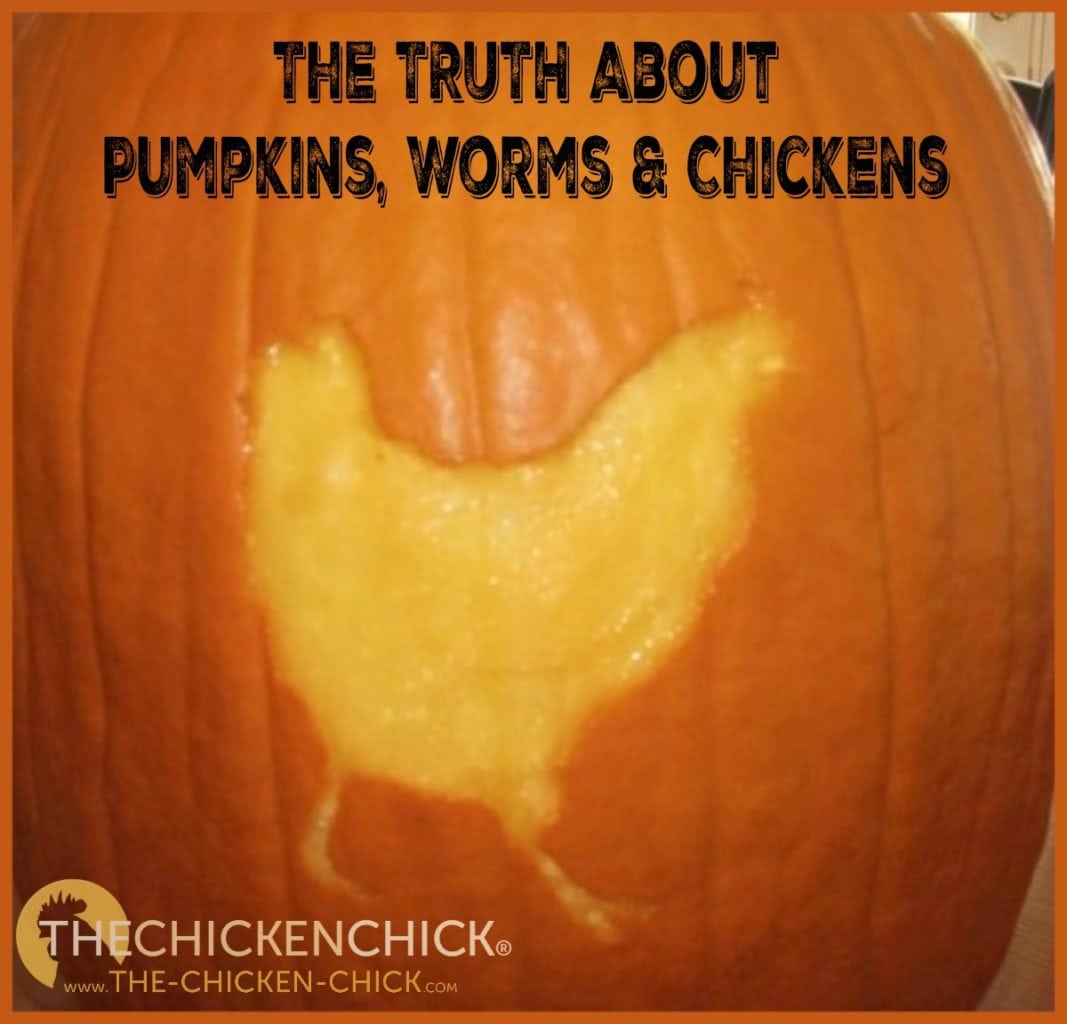
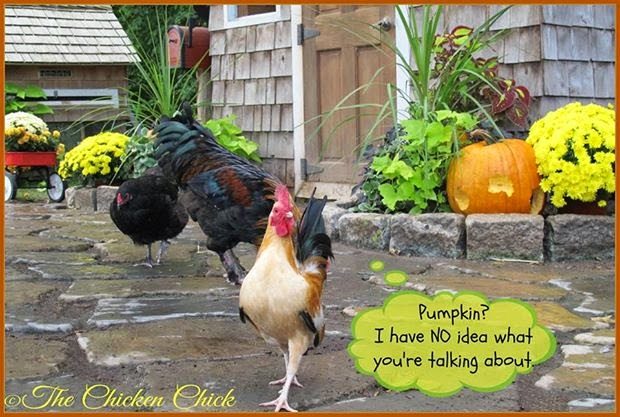
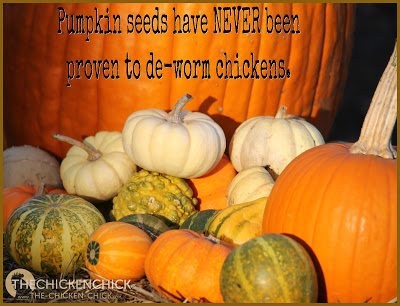
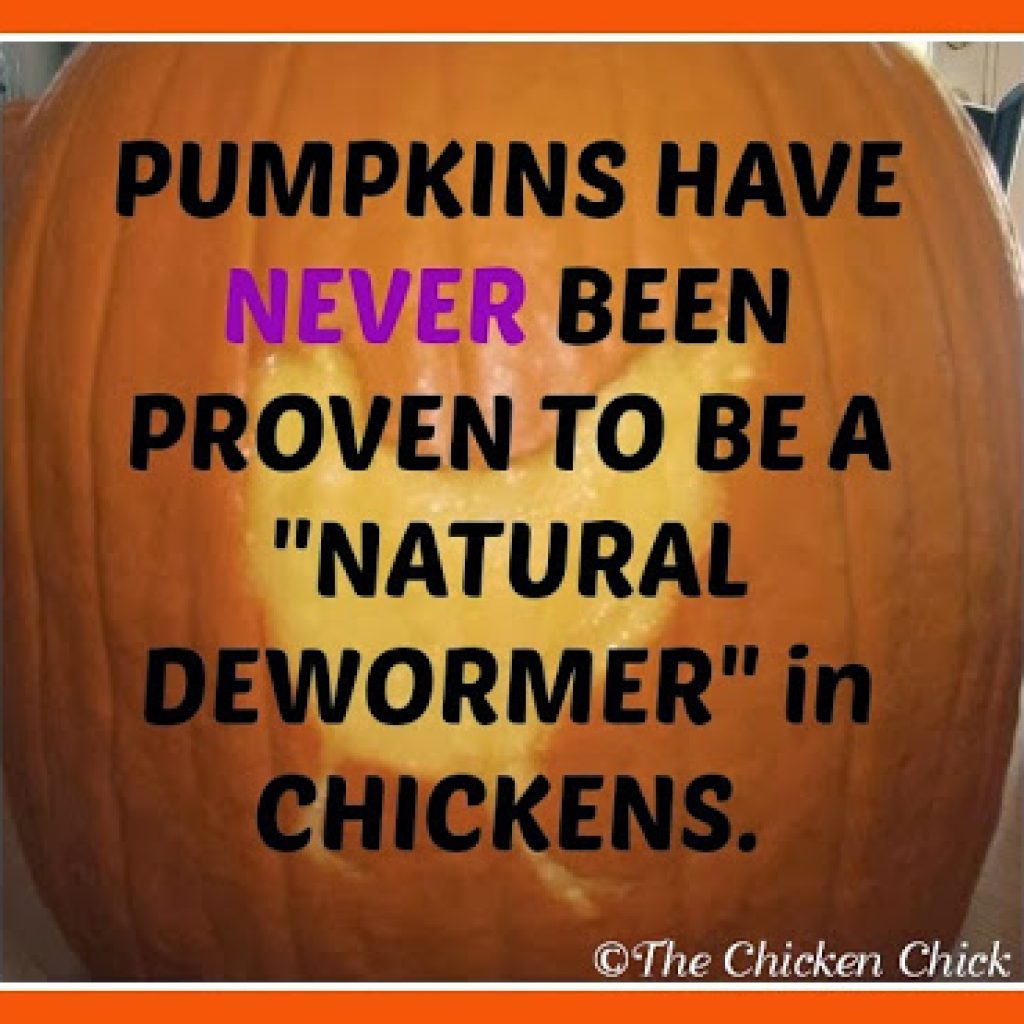
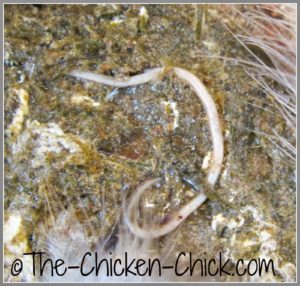
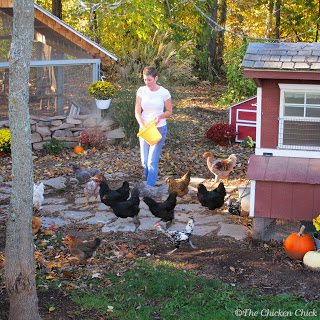
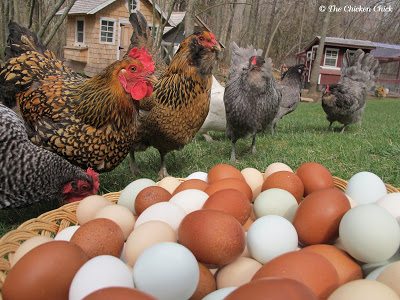






















My guess is that my hens would LOVE Happy Hen treats!
My chickens would LOVE to try Happy hen Treats!
My chickens LOVE Happy Hen Treats!
I guess it's worth a try. I think I'll try the peeps pumpkin pie. Thanks
Thanks for the great info. Can't wait to treat the girls and boys with peeps pumpkin pie!